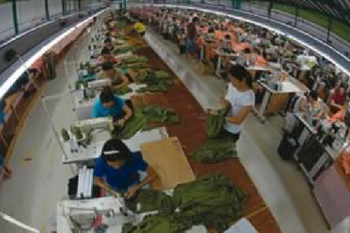For twenty years, Rebecca Clarren has been writing about tribal members, rural communities, immigrants, and the environment for a variety of national magazines.
Here is an assortment of her investigative work. Essays and other original writing HERE.
Idle oil and gas wells are dangers for tribes and people while the operators and regulators stand by.
*Runner-up SPJ’s Northwest Excellence in Journalism Award for Social Issues Reporting
When Indigenous women are harassed at work, gaps in tribal law can leave them in a precarious gray area.
Once considered illegitimate, Native American peacemaking courts offer a model for criminal-justice reform.
*winner of SPJ’s Northwest Excellence in Journalism Award for Social Issues Reporting
Punitive discipline, inadequate curriculum, and declining federal funding created an education crisis.
*winner of SPJ’s Northwest Excellence in Journalism Award for Social Issues Reporting
*runner-up for SPJ’s Northwest Excellence in Journalism Award for Government & Politics Reporting
Native Americans say the law protects their children. The Goldwater Institute claims it does the opposite.
*winner of SPJ’s Northwest Excellence in Journalism Award for Social Issues Reporting
*2nd place winner for Best Feature Article, Print/Online from NAJA
Each year logging companies drop thousands of pounds of herbicides onto Oregon forests; sometimes, the people living nearby get sprayed and sick.
Natural gas drilling may disrupt, not just the environment, but your health.
What happens when your garden, your kid’s school, the playground sits on top of former farms and orchards? What chemicals are living in the soil?
Sure it says it’s green, but what’s that really mean?
A broken system leaves immigrant workers invisible - and in danger. Reprinted in Utne Reader.
*winner of the 2010 Hillman Prize for Magazine Writing
Northwest tribes utilize traditions and religion to stem a health care crisis.
When civilization coughs up its final death rattle, one of the last bastions of mankind’s survival will lie near Corvallis behind a modest sign touting a simple mantra: “Preserving plant genetic resources for all time.”
The dirty side of the clean fuel boom.
“It’s absolutely shocking what’s going on,” say insiders. Secretive changes have diluted science and jeopardized public health.
*Winner of Salon.com’s Best Story of the Year
Fresno County growers apply pesticides an average of 273,000 times per year; they don’t always stay in the fields for which they’re intended; they may lace the air and drift throughout town onto, say, the playground or people’s homes.
If hybrids are driving a revolution, it's a televised road trip to marketing heaven.
An investigation into the shadow world of sex and labor trafficking in the United States.
Wyoming’s natural gas boom sees growing pains.
How Industry and Politicians are harvesting ethanol for all it’s worth.
In their own words: what it’s like when gas drilling comes to your town.
An unlikely group of New Mexicans works to protect their communities from gas development.
FULL ARTICLE
A leaked document exposed the Bush Administration’s plans.
A gas-extraction process called “fracking” may be releasing a carcinogenic stew of chemicals. Dozens of people say it has made them seriously ill, but the EPA refuses to investigate — a failure one of its own engineers calls “irrational and corrupt.”
Greed, Sex Slavery, Forced Abortions, and Right-Wing Moralists.
That’s what some women farmworkers call the fields and orchards in which they face persistent sexual assaults. As if backbreaking work, low wages and pesticide poisoning weren’t enough.
In the Arctic, where flowers are madly blooming, trees are growing to mutant sizes and the snowpack is thinning, researchers are getting an incontrovertible view of global warming.
While farmworkers are sickened by pesticides, industry writes the rules.
On the rigged BC coastline, tribes and fishermen fight a “salmon apocalypse.”
Some Oglala Lakota grow hemp to grow their economy and their sovereignty.
There are times during the year, he says, when the sky turns black as the sun disappears behind waves of birds that roll overhead. But this fall, when over 1.5 million birds return on their southern migration, the waterfowl had best make reservations at a Holiday Inn.
*winner of an honorable mention from the 2002 John B Oakes award





























